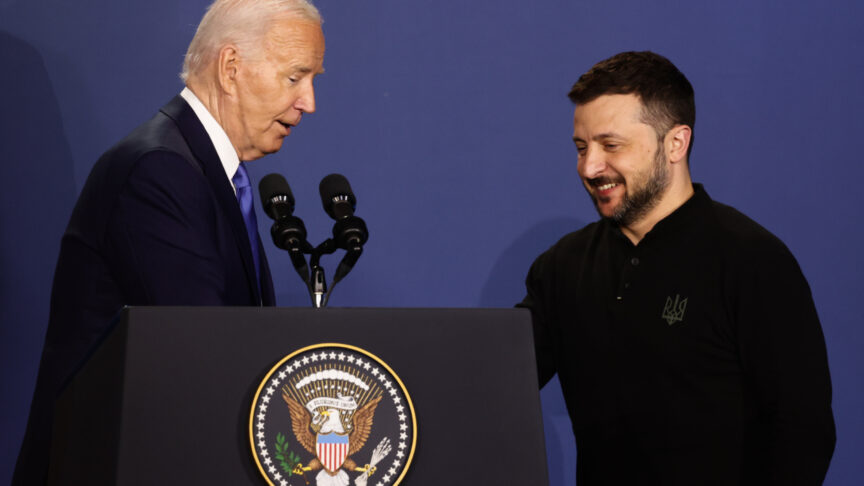All eyes on ?triple-hatted? Ashton
Nobody ever said that running the EU was going to be easy. Ms Ashton’s job is clearly complex and difficult
As the European parliament prepares for January’s public hearings on President
José Manuel Barroso’s second Commission, the chief interest lies in the new
post given to the UK’s
Catherine Ashton. The role is often
dubbed ‘double-hatted’ but as more people begin to read the Lisbon treaty a rather different, and more
complex, picture emerges.
One may wonder if it was the magnificence of the job’s title which appealed
to Peter Mandelson, the UK business secretary: ‘High Representative of the
Union for Foreign Affairs and Security Policy and First Vice-President of the
European Commission’. For short, let’s call her the EU’s foreign minister.
The job – in fact, triple-hatted – combines the former functions of Council
High Representative Javier Solana and External Relations Commissioner Benita
Ferrero-Waldner, along with the current Council presidency role of Swedish
foreign minister Carl Bildt. Ms Ashton’s main role is to initiate proposals in
common foreign, security and defence policy. When she acts with the explicit
support of the Commission, she obliges the Council of Ministers of foreign
affairs – which she chairs – to act by qualified majority vote.
Ms Ashton also ensures the implementation of the decisions adopted by the
European Council and the Council of Ministers. She will ‘conduct’ or ‘put into
effect’ the policies under a Council mandate, using national and Union
resources. Where the European Council has defined a ‘common approach’, the
minister will coordinate activities. She represents the Union
in these matters, conducts political dialogue with third countries and international
organisations.
That Ms Ashton, vice-president of the European Commission, will convene and
chair the Foreign Affairs Council is a highly significant innovation. She and
the Council will ensure that member states comply with the principles of
sincere loyalty and mutual political solidarity. They also aspire to ‘unity,
consistency and effectiveness of action’.
Where all EU states do not participate in international organisations,
(including the UN Security Council) or conferences, the foreign minister will
be kept informed by those which do. When the EU has a common position on an
item on the agenda of the Security Council, those member states which sit on
that body may invite her to present it.
It remains the function of the Commission, however, under the authority of
President Barroso, to ‘ensure the Union’s
external representation’ in fields other than foreign and security policy. Ms
Ashton will therefore be responsible in the Commission for ensuring the
consistency and coordination of the EU’s external action according to
Commission procedures, as well as being expected to ‘assist’ the Council and
Commission ensure consistency between external and internal policies.
The minister will be associated with the group of certain states entrusted from
time to time with civilian and military missions. She will be consulted about
the establishment of permanent core groups in the field of defence. She will
have to propose Council decisions on the financing and administration of an
intergovernmental start-up fund for civilian and military missions.
The foreign minister will often be seen in the European parliament and will
regularly consult and inform it on the ‘main aspects and basic choices’ of
common foreign, security and defence policies, taking its views into account.
In short, Cathy Ashton will be very busy. She may, therefore, propose the
appointment of special representatives to carry out her mandate on particular
issues. In matters exclusively concerning foreign, security and defence policy,
the three foreign ministers of the ‘trio’ team presidency of the Council of
Ministers will be able to deputise on her behalf and under her authority.
Ms Ashton will be helped in particular by her fellow commissioners
responsible for development policy, enlargement and neighbourhood policy, and
overseas aid. Yet other commissioners, namely those of trade, energy, climate,
justice and home affairs, will also be associated with Ms Ashton’s work.
The foreign minister is to be ‘assisted’ by the new European External Action
Service (EAS), which will cooperate with national foreign ministries and
comprise officials from the Council and Commission as well as staff seconded
from national diplomatic services.
There is no precedent for such a creature. The EAS will be nesui geris.
It will not be an agency of the Commission or Council, but it should be
organically linked to the Commission for the purposes of finance, personnel,
administration and technical services. If it is not (as some in the Council
wish) there will be interminable negotiations between the EAS and the
Commission whenever Ms Ashton wants to do anything. Speculation about the
autonomy of the EAS or ‘equidistance’ from existing institutions is misplaced.
For the EAS to work well it must have the trust of, and be close to, both
Council and Commission. It must command all the assets and resources necessary
to promote an active foreign policy.
Over at the Council, there are big changes. With the exception of Ms Ashton,
foreign ministers have been excluded from the European Council, which becomes
an EU institution in its own right. The old General Affairs and External
Relations Council disappears, with the spoils divided between the Foreign
Affairs Council (FAC) and a General Affairs Council (GAC).
The FAC is to ‘elaborate the Union’s external action on the basis of
strategic guidelines laid down by the European Council and ensure that the
Union’s action is consistent’.
The GAC is to ‘ensure consistency’ in the work of the different
configurations of the legislative Councils. Yet it shall also ‘prepare and
ensure the follow-up’ to meetings of the European Council in liaison with the
Commission and the President of the European Council, Herman Van Rompuy.
Ms Ashton’s nominee will chair the Political and Security Committee, and be
responsible for the political control and strategic direction of crisis
management operations. Council working groups will only gradually mutate from
the rotating presidency towards the Ashton regime.
It will be important that the timetabling of Council meetings reflects this
separation, and that politically charged agenda items are not allowed to
migrate from the FAC towards a GAC stuffed with foreign ministers. Foreign
ministers in the FAC need to get to do more foreign policy, while a new class
of Ministers of Europe in the GAC should coordinate better the legislative work
of the Council and their own governments back home.
The GAC will have to work within the framework of a new multiannual work
programme agreed with the Commission and Parliament. This is designed to lead
to the extinction of the frequently pretentious and always distracting
programmes of the rotating presidency – usually no more than a bundle of
national policies with European maquillage slapped on.
Nobody ever said that running the EU was going to be easy. Ms Ashton’s job
is clearly complex and difficult. It ill-behoves those prime ministers who have
appointed her now to subvert her. If she gets parliament’s approbation in
January, which is likely, she will need its continuing support to maximise her
freedom of manoeuvre.
Andrew Duff is a British Liberal Democrat MEP and ECFR council member.
This piece was first published in the Financial Times.
The European Council on Foreign Relations does not take collective positions. ECFR publications only represent the views of their individual authors.


